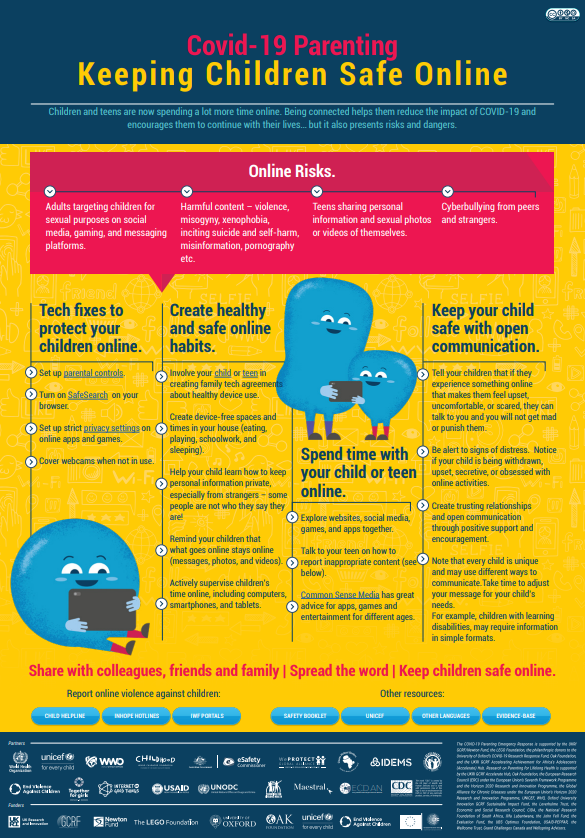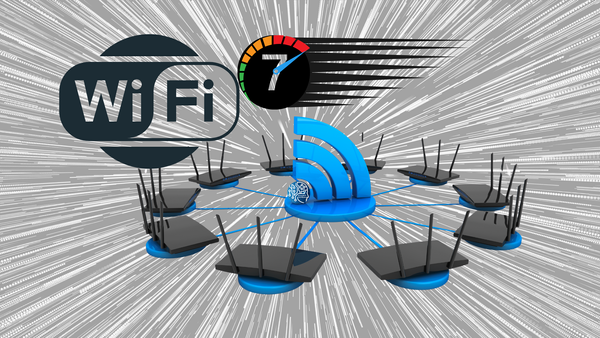Children's Online Safety

As a parent myself, I know firsthand how important it is to keep our children safe in the digital age. And, being in the IT industry myself for almost 25 years, I know exactly what dangers are out there. With the internet being such an integral part of our daily lives, it's crucial that we equip ourselves with the proper knowledge and tools to protect our children from the potential dangers online.
In today's digital age, children are more connected than ever before. With access to smartphones, tablets, and computers, they can easily connect with friends, explore new interests, and learn about the world around them. It is a great tool for them and in no way should they be completely sheltered from it as an act of staying safe as the internet has become so essential for almost everything we do in our daily lives. However, this increased connectivity also comes with risks, as we all know very well. The internet can be a dangerous place, and children, along with their parents, need to be aware of the potential dangers that exist online in order to properly safeguard themselves.
According to recent studies, over 70% of children have accidentally encountered inappropriate content online. In addition, cyberbullying is on the rise, with over 1 in 3 children experiencing some form of online harassment. Online predators are also a real threat, with millions of children being targeted each year. These statistics highlight the importance of online safety for children and the need for parents to take an active role in protecting their children online.
Routinely, on a daily basis, I review what my youngest daughter has been doing online and on social channels. We have a plethora of safeguards in place but it is essential to perform further due diligence to ensure my child's experience is a safe one. And, many times, I still find a questionable chat or luring attempt that my daughter is innocently oblivious to. She knows enough to never divulge sensitive information but she can still get caught by a "new friend" she has made in her game or chat. Even my security devices have picked up and blocked attempts of unauthorized connectivity being attempted at the time of her communicating with her "friend". The contact is blocked and she is none the wiser. I then ensure to reiterate, in a very kind and positive way, of how to ensure we stay safe and things to watch out for. And, I always ensure that she is comfortable in knowing that she can come to me and talk about it anytime and further knowing that I am available to be involved with her online activity whether through play or education.

The Risks Children Face Online
Children face a number of risks when they go online, including cyberbullying, online predators, and exposure to inappropriate content. Cyberbullying can take many forms, from hurtful messages or comments on social media to threats and harassment in online games. Online predators may pose as children or teens to gain the trust of young people, and then use that trust to exploit them or harm them. Exposure to inappropriate content can range from accidentally stumbling upon adult material to intentionally seeking out violent or disturbing images. An online game can seem innocent enough, but without sharing in the experience and reviewing the game prior, your child could be in severe risk of harmful intent.
It's important for parents and caregivers to be aware of these risks and take steps to protect their children. This can include setting up parental controls on devices, monitoring their child's online activity, and having open and honest conversations about the potential dangers of the internet. This is something we do on a regular, and have done so with both of my daughters, since first allowing them online. I also ensure I fully participate with my daughter in playing her games online and chatting with her and her friends - even with my 17 year old! We have lots of fun and at the same time, I have a close eye on what's going on and am able to teach them at the same time.
Tips for Parents
First off, I strongly suggest to ensure you get to know the "in's and outs" of securing your home network (if you don't know already), and all devices that connect online. This starts at the entry point, your gateway router, to ensure certain known ports are blocked for entry attempts, enabling firewall and security rules, URL scanning and security software scanning (if your router has this ability). Next, set up parental controls on all your devices your child uses or has access to, in order to limit the content they can access. Enabling Safe searching, content restrictions, age appropriate access, time of day use restrictions, VPN use, and restricting downloads and social chats in game sites are excellent ways to help ensure online safety.
Monitor your child's online activity and be aware of who they are interacting with online. Have open and honest conversations about potential risks. Be involved with your children's online activity by taking an interest in what their doing and sharing in the experience with them while keeping a watchful eye and educating them at the same time. Here is a nice infographic that the Government of Canada put out to help kids and parents stay safe online during COVID-19 with Parenting Tip Sheets (You can click the image to get the posted PDF version that you can interact with it and download it from the government site).

Tips for Children
Do not share personal information such as your full name, address, or phone number online. This includes nearby street names or areas that can identify you in being in a specific locale.
Be cautious when interacting with strangers online. People may not be who they say they are and can pose a danger to you. If they start asking odd questions or far too many questions about you, where you are, or what you look like, tell your parents and have them investigate. Always tell a trusted adult if someone makes you feel uncomfortable or asks you to do something that makes you feel uneasy.
Social Media and Online Reputation
Social media has become commonplace in modern life, and for children growing up in the digital age, it can be both a blessing and a curse. On the one hand, social media platforms offer unprecedented opportunities for connection and self-expression. On the other hand, they also present significant risks to children's online reputation.
Every post, comment, and photo that a child shares online contributes to their digital footprint, which can have far-reaching consequences. Even seemingly innocuous posts can come back to haunt them in the future, potentially impacting their academic and professional prospects. As such, it is crucial that children learn to be mindful of what they share online and the potential consequences of their actions.
In my days of growing up, there was no such thing as the Internet and social media. As children are now born into this everchanging digital sharing and connected world, it is essential that as a parent, we must educate our children like never before. And that means educating ourselves first. Knowing the good from the bad and everything in between, must be understood by us in order to properly educate our children. Far too many times I have witnessed children on questionable sites, games or social channels while the parents are none the wiser of their true purpose and, as they are not educated themselves, they cannot properly protect their children. Then, when something goes wrong, the children end up being in the wrong while, in truth, the parents are strictly the ones at fault.

What to Do if Something Goes Wrong
If your child encounters a problem online, it's important to take action immediately. The first step is to talk to your child and listen to their concerns. Make sure they know that they can come to you, at any time, for help and support.
Depending on the situation, you may need to contact the website or app where the incident occurred and report the issue. You can also reach out to organizations like the Kids Help Phone, INHOPE Hotlines and IWF Portals for additional resources and guidance.
To Wrap It Up
Online safety is a crucial issue that parents and children need to take very seriously. The internet can be a dangerous place, but with the right knowledge and tools, we can all stay safe. Parents need to ensure they are very involved with their children's online activity, and just as importantly, ensure they are properly educated about the threats and the safeguards that need to be put in place for children being online.
Remember, online safety is everyone's responsibility. By working together and taking action, we can create a safer online environment for our children. I am more than happy to help educate you on proper security methods, specific tools, and various safeguards for keeping your child safe online. We'll also be posting important Tech-Tips regarding settings for children's safety on connected devices so make sure to subscribe to get notified.





